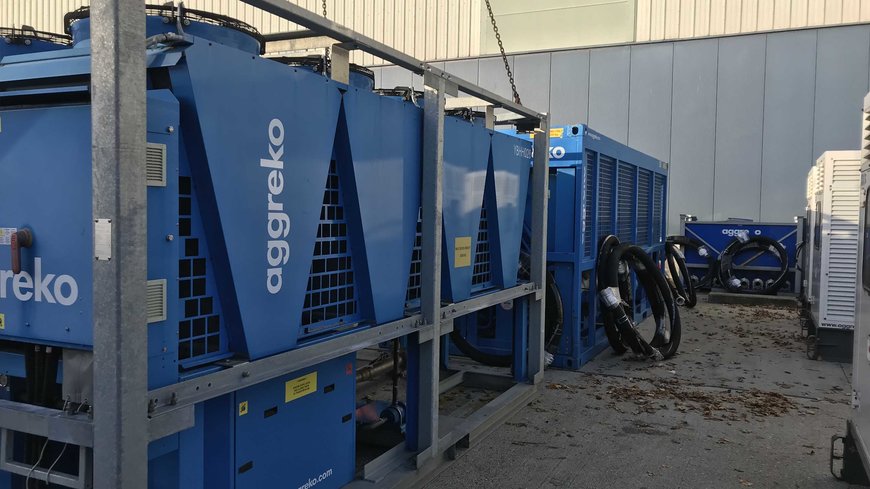constructionequipmentmag.com
07
'24
Written on Modified on
Aggreko
Aggreko: Tightening EU F-Gas Legislation Highlights Need to Leverage Supply Chain Expertise
Following the European Council’s endorsement of legislation to phase out hydrofluorocarbons (HFCs) by 2050, temperature control specialist Aggreko is advising manufacturing plant equipment stakeholders to leverage supply chain expertise to best manage any transition.

The Council endorsed texts provided by the European Parliament following a January vote to revise European F-gas regulation (517/2014) removing HFCs from all sectors by 2050 . The move is intended to provide greater clarity to European industry over their emissions reduction plans and encourage investment in greener solutions.
With the reforms setting out a clear roadmap for all sectors operating within the EU, Ruth Martin, Manufacturing Sector Manager at Aggreko UK is imploring industry to engage with the supply chain to minimise potential upheaval. They are encouraging manufacturing company stakeholders to review their current cooling equipment portfolio with this new announcement and ongoing environmental commitments in mind.
“The EU’s decision to clarify a full phase-out of HFCs is undoubtedly welcome news and provides a clear picture of the bloc’s decarbonisation plans going forward,” says Ruth. “This should in turn spark conversations within the manufacturing industry on immediate steps that need to be taken – especially for businesses that make extensive use of temperature control technologies including chillers and coolers.
“While this may lead to some upheaval in existing operations, the transition to greener cooling solutions can be made smoother if manufacturing businesses review their approaches to equipment provision in the immediate future. For this to happen swiftly and effectively, it is vital that key stakeholders capitalise on expertise within the supply chain.”
According to Ruth, these F-gas revisions exemplify the acceleration and tightening of sustainability legislation required for the UK and EU to meet net zero goals. With more revisions to sustainability regulations expected in the short, medium and long term, Ruth is highlighting the role of temporary hire to guard against risks of non-compliant or stranded temperature control assets.
“As far as sustainability measures and obligations for manufacturing companies are concerned, the direction of travel has long been clear,” Ruth concludes. “To ensure effective decarbonisation in line with 2050 goals such as those set out in these revised EU regulations, environmental obligations will become increasingly strict over time.
“Consequently, the risk that today’s solutions may not be fit for tomorrow is clear for those looking to make long-term investments on permanent temperature control installations.
Considering the level of flux that now characterises green legislation and sustainability commitments, it is therefore advised that cooling equipment stakeholders explore new approaches to equipment procurement. Temporary hire in particular may give manufacturing businesses a level of dynamism and the ability to futureproof operations as new legislation and regulations come to the fore.”
For more information on Aggreko’s services, click here.
www.aggreko.com

